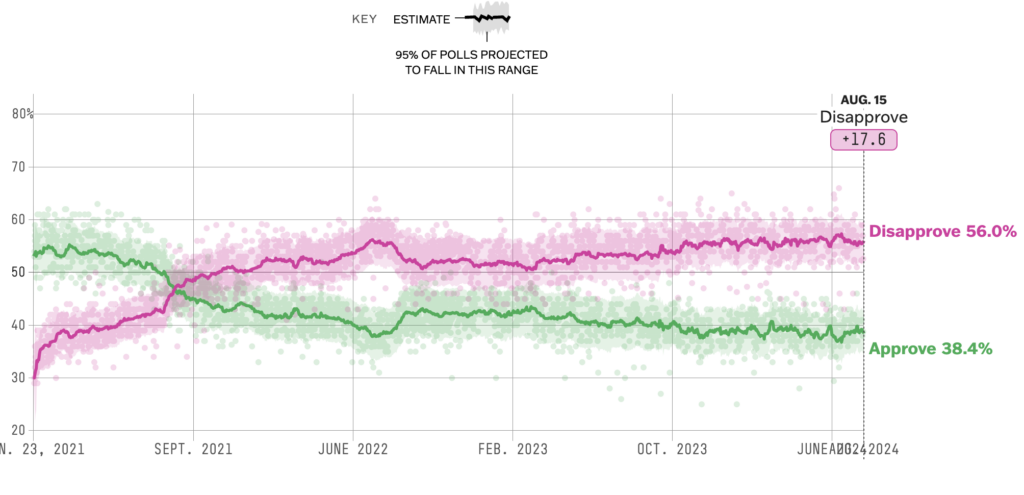Does the seamless transition to Harris mean that parties are stronger than we think?
My friend Sam Rosenfeld co-wrote a book that came out earlier this year about the weakness of the major parties in the US and the problems this poses for American democracy. Superficially, this might seem like unfortunate timing, since Democratic Party elites were able to 1)compel Joe Biden to step down even though he believed he could win apparently to the bitter end, and 2)form a consensus around Kamala Harris. However, I agree with Julia Azari that it’s more complicated than that:
The Democratic Party has shown it can still perform one of the most essential functions of a party: nominating a presidential candidate who seems to unify the coalition more than they divide. But closer scrutiny shows that this process still relies on informal practices to work and depends heavily on political circumstances. Democrats may have found unexpected strength in a new and exciting ticket for the 2024 election cycle. But the weakness and vulnerability of parties as institutions should still be of long-term concern.
The circumstances here are critical. As I’ve been arguing for a while, the circumstances of Biden resigning boxed out any challenger but Harris. Some commentators wondered why a potential contender like Whitmer or Shapiro didn’t run, but the answer is blindingly obvious: there was zero chance anybody was going to assemble a majority coalition, or even a credible minority faction, against the sitting vice president who was going to get the endorsement of the outgoing president in three weeks. Trying to challenge Harris would have had no chance of succeeding while poisoning the well for a future presidential run. As Azari says, the fact that an alternative candidate would have meant passing over an African-American woman who primary voters had already chosen to replace Biden should he be unable to serve as president made a challenger even less realistic given the reality of the Democratic coalition. Pundit daydreaming aside, once the primaries were over the Democratic nominee was going to be Biden or Harris.
Yes, some donors and pundits talked about an open convention. This is because some pundits and donors rub their thighs about an open convention every single cycle with a competitive primary. (The new Max series THE GIRLS ON THE BUS ends…with a Thunderdome convention.) If there was a way of making it happen it would have already happened. Donors and members of the party who liked the (obviously nonsensical) idea of a three week fake primary had no way to force a serious challenger to immolate their political future to give them some jollies. I also think people are misreading Pelosi’s gestures about an open convention — by the time she had concluded that Biden should resign, she would have known that nobody was organizing a serious challenge to Harris, an effort you just can’t start from nothing in late July. She wouldn’t have endorsed Harris the day after Biden stepped down if she wanted a blitz primary, she was just trying to placate dummies among the media and donor class who think that delegates voting for the only candidate with any democratic legitimacy would be a “coronation.”
Harris becoming the nominee if Biden stepped down was overdetermined, and hence isn’t really an indication of a fundamental change in the structure of American parties. Had Biden decided to or been forced to step down in April or May things could have gotten a lot messier. And as Azari says a stronger party would have produced an alternative nominee before Biden blowing the debate made him a huge underdog in an election most Democrats believe to be existentially important. Incidentally, I’ve seen some people argue that Biden was only in deep trouble because of the post-debate movement within the party to replace him, which is very clearly false:

Biden has been severely underwater for most of his presidency. He started the year with a net disapproval of 16 points. On July 1 — a few days after the debate, and before any major Democrat had suggested Biden should step down — he was at -19. That the nomination was still his if he wanted it is more a sign of the weakness of American parties than any increase in party strength, and the relatively seamless transition to Harris once he stepped down was a product of unusual circumstances — a consensus emerged because the incentives of party elites were in alignment. Fundamentally, I think the thesis of The Hollow Parties remains correct.
